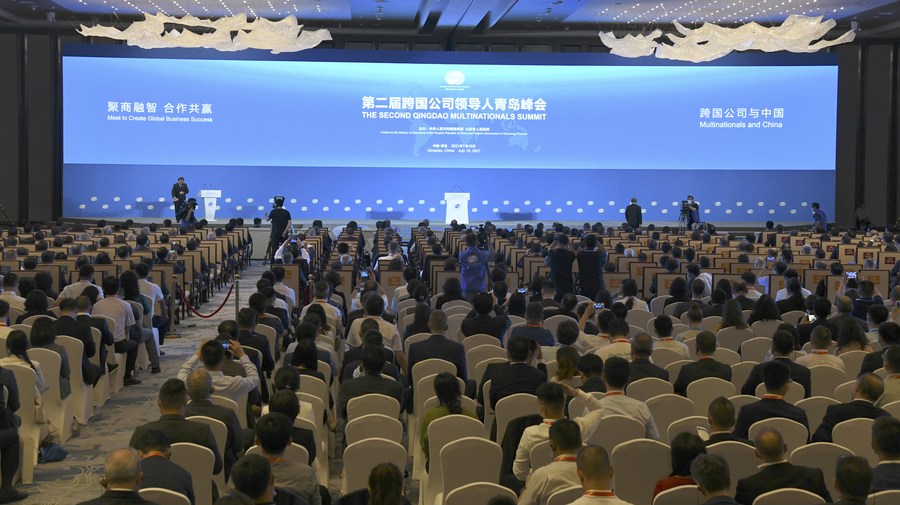Why has China become such a strong magnet for FDI?

Photo taken on July 15 shows the second Qingdao Multinationals Summit held in the coastal city of Qingdao, east China's Shandong Province. [Xinhua/Li Ziheng]
China has become the second highest global recipient of global FDI for four consecutive years, as the country is seen as a "safe haven" for global capital, with more and more foreign investments pouring into China seeking opportunities.
Foreign direct investment (FDI) into China jumped to $144.37 billion last year, with this year also seeing a continued increase of FDI in China. The latest data from the Ministry of Commerce (MOFCOM) indicated that from January to June 2021, the actual use of FDI in China reached 607.84 billion yuan ($93.78 billion), an increase of 28.7 percent year-on-year and 27.1 percent over the same period in 2019.
The figures above show that multinational companies have continued to invest confidently in China.
Developing economies have played a leading role in attracting investment from multinational corporations, according to a research report released by MOFCOM at a summit recently held in Qingdao, east China's Shandong Province. Among them, China has emerged as one of the strongest magnets of FDI, as its share of FDI among all developing economies has remained stable at around 20 percent.
Why was China able to become such a strong magnet of FDI? Director-general of the World Trade Organization (WTO) Ngozi Okonjo-Iweala gave a preliminary answer when she revealed that an upcoming report indicated that in the second half of 2020, countries and regions that have good trade relations with other countries that have seen fewer COVID-19 cases enjoyed significantly faster economic recovery, while China has taken effective measures to control the pandemic.
This trend can also be attributed to China’s continuously deepening market reform and stimulated vitality of major market players. The country has accelerated the pace of its business environment optimization. Over the past eight years, the negative list of foreign investment access has been revised six times, and the number of restrictions reduced from 190 to 33. Meanwhile, China has sped up its formulation of a negative list of cross-border trade in services and improved its catalogue of industries that encourage FDI.
The booming growth in FDI could also be attributed to the fact that China has expanded its opening-up to the outside world and sped up the fostering of a new development paradigm. A total of 21 free trade pilot zones, 230 national economic and technological development zones, Hainan Free Trade Port and the China International Import Expo, among others, all serve as open platforms that are catalysts for China’s opening up.
When China is further embedded in the global industrial chain to optimize and upgrade the industrial structure and improve overall efficiency, it can break the bottleneck in natural resources and get rid of the traditional factor-driven extensive economic growth model. With the continuous release of super-large dividends of domestic consumption, China has brought broad space for the development of global enterprises.
The views don't necessarily reflect those of Qiushi Journal.
























